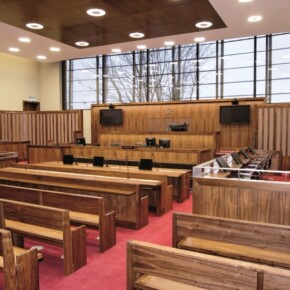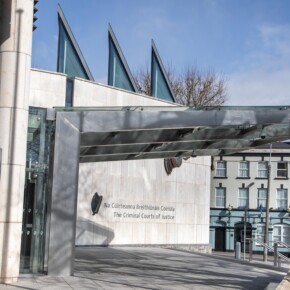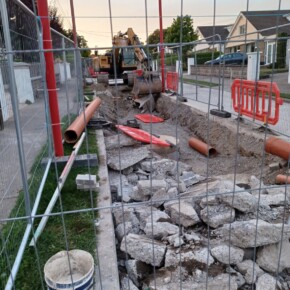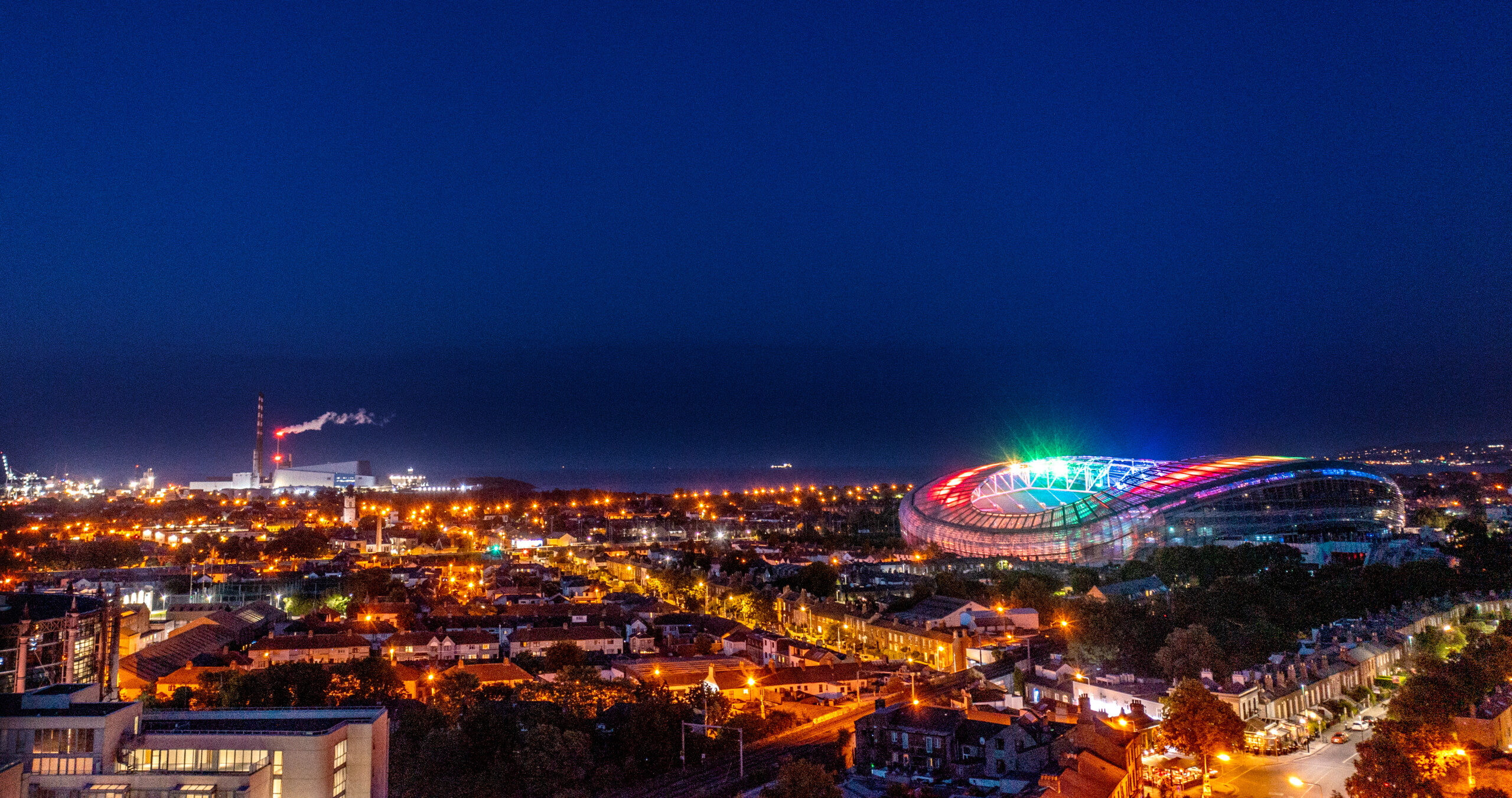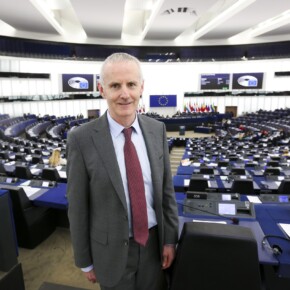7 seats up for grabs in a busy Rathfarnham-Templeogue
Mike Finnerty 01 May 2024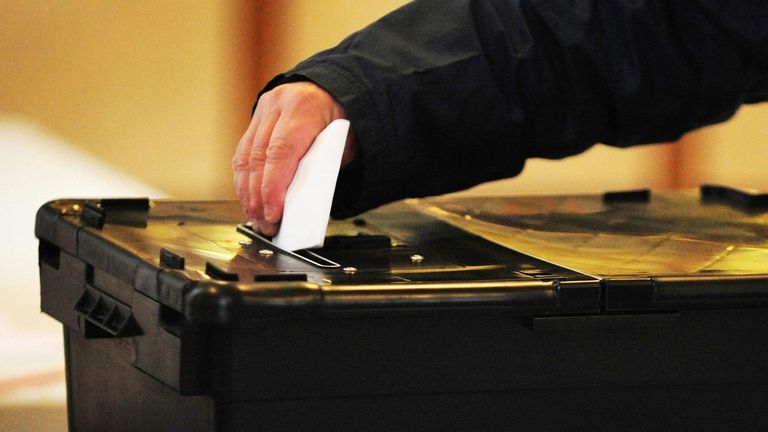
Getting people to turn out for local elections is like pulling teeth.
20 years ago, the average turnout across all South Dublin County Council constituencies was a healthy 51.4%.
When South Dublin County Council voters took a trip to the polls in 2019, the average turnout was a measly 40.4%.
Out of all the South Dublin County Council constituencies that voted in 2019, Rathfarnham-Templeogue had the highest turnout at 51.02%.
High turnout implies that voters are keenly aware and tuned into the electoral process and what goes on in their area.
By that virtue, June’s local elections can be considered a mini-preview of the next general election.
Local elections are typically fought on hyper-local and specific local issues, but the theme of this year’s local elections is general election dress rehearsal.
The constituency only came into being in the 2019 local elections and was topped by Green candidate William Priestley.
Priestley was elected on the first count with 14.1% of first preferences and was a perfect representation of how the Greens were totally in touch with the public mood in 2019.
In 2024, that is a totally different story.
Incumbent councillor Mark Lynch will be lining out for the party in June in an electoral environment that will prove challenging for the Greens.
South Dublin is the party’s stronghold; in the plainest terms, it needs to be holding onto a seat here if they are to keep the wagon on the road.
The good news for Lynch is that he has the advantage of being an incumbent and could lose as much as half of his first preferences from 2019 and still get elected.
14% of first preferences is a strong achievement in a 7-seater, but it is unlikely the Greens are going to pull in that kind of numbers this time out.
The Green wave in 2019 (and the 2020 general) was reflective of a party in touch with the public mood on climate, frustration with a stagnant Fine Gael led-government and the Greens looking at their progressive cousins on the continent for inspiration.
Five years later, the experiment has soured considerably – the jury is still out as to who will benefit.
7-seaters are generous to parties like the Greens, but it’s also kind to other progressive parties such as Labour, the Social Democrats, and People Before Profit.
Labour running two candidates here just like they did in 2019 could be a sign of where things are going.
Incumbent Pamela Kearns is running for the party again, with local area rep Ciaran Ahern brought in as her running mate.
Labour took 16.6% of first preferences in the area in 2019 meaning there is plenty for the party to build on.
From a Labour perspective, it is obvious that targeting Green votes are the way to go.
The same can be said of the Social Democrats, who are running Justin Sinnott in the seat.
Sinnott was co-opted onto South Dublin County Council before Christmas and has wasted little time in building his profile.
Sinnott has the distinct advantage of having previous electoral experience, getting elected as an independent in Swords back in 2014 and serving until 2019.
Sinnott joined the purple team last year and is well-placed to serve a full term on the Southside just as he did on the Northside.
It is something of a wonder that the party don’t go for the kill by running an extra candidate if Sinnott seems assured of a seat.
2019 was nothing short of a debacle for Sinn Féin; their candidate got just 10 more first preferences than there were spoilt ballots in the area.
One would imagine that Sinn Féin won’t be getting 2.5% of first preferences this time.
The big question for the party is where exactly are they getting their votes from; is it from floating voters? Frustrated government party voters? Young commuters? Homeowners? Former Labour voters? Students? Maris from Frasier?
The party is opting to run two candidates, Anne Dillion and Enda Fanning in the seat.
Fanning has previous experience serving on South Dublin County Council and is reasonably well-known among the general public thanks to his 11,000 Twitter followers.
Sinn Féin are running at least two candidates in each South Dublin County Council constituency (in total, the party are running 22 candidates at time of going to press, well above Fianna Fáil’s current load of 8 and Fine Gael’s 11) so if the party want to become the biggest party it needs to win at least one seat here.
Fanning and Dillion were selected as Sinn Féin’s candidates last October and having 6 months of ground game and door-knocking is crucial in the context of a local election.
Both Fianna Fáil and Fine Gael possess strong voter bases here; Fianna Gael scooped 2 of the 7 up for grabs in 2019 while Fianna Fáil narrowly missed out on a 2nd seat.
Fine Gael ran four candidates here in 2019 which is an indication of how highly the party regarded their voter base.
The party have opted to run just their two current councillors, David McManus and Lynn McCrave in what could be read as the party realising they were over-ambitious in 2019.
In any case, both candidates should be comfortable in securing re-election; neither are likely to be a poll-topper, but have enough of a personal vote to secure another five-year trm.
Between their four candidates in 2019, Fine Gael picked up 21.4% of first preferences which is impressive in the context of a 7-seater, but may have spread the candidates too thin in that case.
Fianna Fáil took home 16% of first preferences in 2019 and in truth were unlucky in not getting their two candidates elected.
In some strange twist, the Fianna Fáil candidate that got 8.5% of first preferences wasn’t elected but the candidate that got 8% won a seat.
Yvonne Collins was the successful candidate for Fianna Fáil that particular day and is the only candidate on the ballot for the party in June.
Former Renua candidate Ronan McMahon will be looking for his third term on South Dublin County Council in June.
McMahon has been elected each time as an independent, finishing 2nd in 2014 when the constituency was part of Templeogue-Terenure, and finishing 2nd again in 2019 in this constituency.
McMahon is able to take votes from all walks of political life making him a formidable contender on the ballot in June.
People Before Profit will be looking to improve on a dismal 2019 showing which saw more spoilt ballots cast than the party got votes.
In the last five years, the relationship between Sinn Féin and People Before Profit has become somewhat strained; despite the 2020 general election showing that PBP are reliant on Sinn Féin transfers (and it may well be the case in June) PBP have often been the loudest voice lamenting Sinn Féin’s more moderate slate of policies.
The jury is out if the people of Rathfarnham-Templeogue share their appetite for change.
PBP’s candidate on the ballot will be Conor Kelly, who has worked alongside local TD Paul Murphy in recent weeks in fighting the proposed closure of Tallaght post office.
It is often said that local elections are fought on local issues; perhaps this can be the push the party needs.
The people of Rathfarnham-Templeogue have to contend with concerts in the nearby Marlay Park in the summer.
Pop-punk icons Green Day will play the venue later in June; we would make a hackneyed joke about defeated candidates walking down the Boulevard Of Broken Dreams but we have decided against it.



